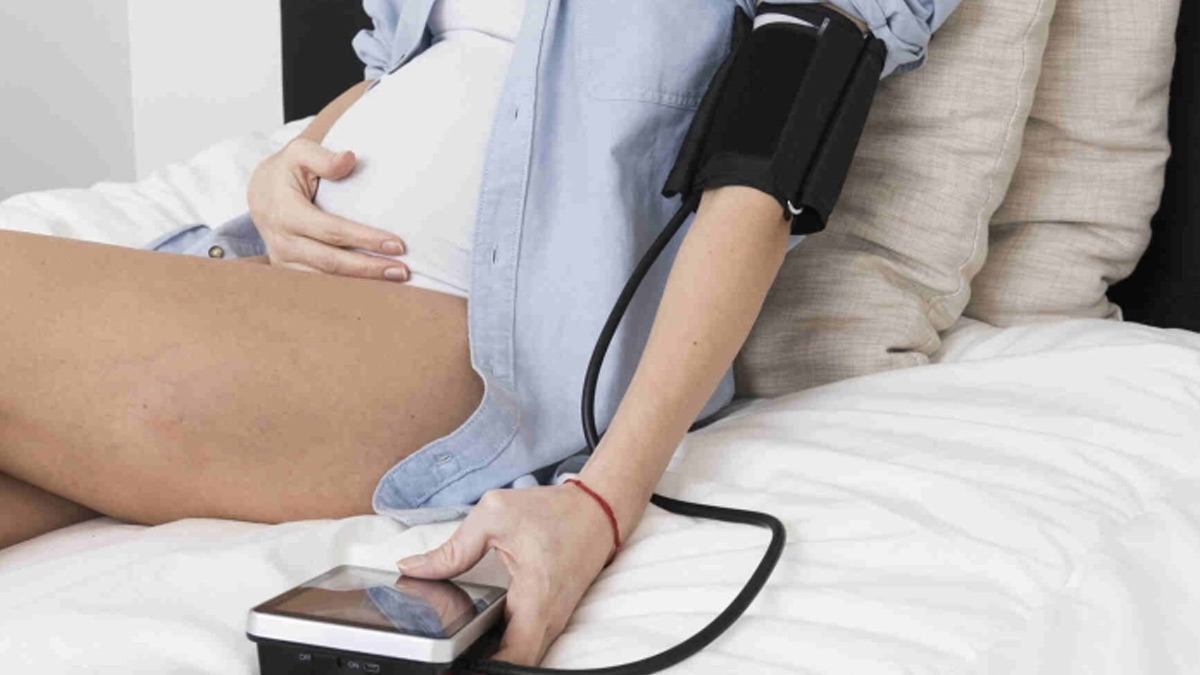-1759910548746.webp)
Pregnancy brings a lot of changes. Not just in lifestyle but inside your body too. One of the most common yet overlooked changes is a drop in blood pressure. Many expecting mothers feel dizzy, lightheaded, or unusually tired, especially during the first and second trimesters. But when is low blood pressure normal, and when should you worry?
Table of Content:-
To understand this better, Dr Parul Aggarwal, Consultant Department of Obstetrics and Gynaecology at Cloudnine Group of Hospitals, Indirapuram, explains what really happens when your blood pressure dips too low, what it means for your baby, and how to manage it safely.
Why Blood Pressure Drops During Pregnancy![blood pressure in pregnancy 1 - 2025-10-08T133204.450]()
“Low blood pressure, or hypotension, is common during pregnancy, especially in the first and second trimesters,” says Dr Parul. “This happens because pregnancy hormones relax the blood vessels, allowing more blood to flow toward the baby.” While this is usually harmless, she adds that both the mother and baby can be affected if the blood pressure remains low for too long.
Common symptoms include:
- Dizziness or fainting
- Blurred vision
- Nausea and fatigue
- Cold or clammy skin
- Feeling lightheaded after standing up
“These symptoms are usually mild,” says Dr Parul. “But if the dizziness or fainting becomes frequent, it can increase the risk of falls and injuries.”
ALSO READ: Turning 30 and Not Ready for Pregnancy? THIS Simple Blood Test Can Help You Plan Your Fertility
What Is the Lowest Safe Blood Pressure During Pregnancy?
According to Dr Parul, there’s no single number that defines the lowest safe blood pressure in pregnancy because every woman’s body is different. “In general, the systolic (upper) value should be between 90–120 mmHg, and the diastolic (lower) between 60–80 mmHg,” she explains. “Many pregnant women normally have a reading of around 90/60 mmHg. However, if the systolic falls below 80 or the diastolic below 50, that’s considered too low.”
Can Low Blood Pressure Hurt the Baby?![can BP hurt the baby 2 - 2025-10-08T133206.514]()
“Mild low blood pressure usually causes no harm to the baby,” says Dr Parul. “But if it stays too low for a long time, it can reduce blood flow to the placenta.” This means the baby might not get enough oxygen and nutrients, which could lead to:
- Restricted growth (IUGR)
- Preterm birth
- Low birth weight
“In rare cases, if the drop in blood pressure happens suddenly, say due to dehydration or bleeding, it can cause serious complications for the baby, including distress or even intrauterine death,” she warns.
Safety Measures to Manage Low Blood Pressure
Most cases can be managed at home with a few simple lifestyle changes. Dr. Parul suggests:
- Stay hydrated: Drink at least 8–10 glasses of water a day.
- Eat small, frequent meals: Avoid long gaps between meals to prevent a sudden dip in blood sugar.
- Get up slowly: Rise gradually from sitting or lying down to prevent dizziness.
- Avoid standing too long: Take breaks and sit whenever possible.
- Sleep on your left side: This position helps improve blood flow to the heart and baby.
- Wear loose, breathable clothes.
“If you feel dizzy, sit or lie down immediately,” says Dr Parul. “Raise your legs slightly and take slow, deep breaths. Drink water or coconut water it usually helps right away.”
ALSO READ: How to Prevent Cardiac Risks During Pregnancy: Expert Shares Strategies to Keep Heart Risks At Bay
When Should You Worry?![blood pressure in pregnancy 3 - 2025-10-08T133208.828]()
While mild symptoms are normal, certain signs mean you should call your doctor immediately. “Seek help if you experience frequent fainting, confusion, chest pain, shortness of breath, blurred vision, or reduced baby movements,” advises Dr Parul. “These may indicate dangerously low blood pressure or another underlying issue.”
What If the Blood Pressure Goes Too High Instead?
Sometimes, blood pressure can swing the other way, becoming too high. “If your blood pressure is above the normal limit, especially above 140/90 mmHg, it can be risky,” says Dr. Parul. “High BP during pregnancy can cause complications like preeclampsia or placental problems. So, regular monitoring is very important.”
According to the World Health Organization (WHO), a drop in blood pressure during pregnancy is normal, especially in the early months. But if it stays too low for too long, it can reduce blood flow to the placenta and affect the baby’s growth. Regular checkups and staying hydrated help keep both mother and baby healthy.
ALSO READ: Nipples Bigger After Pumping? Here’s Why It Happens and When to Be Concerned
Conclusion
Low blood pressure in pregnancy is common and, in most cases, harmless. But being aware of the symptoms and taking preventive steps can make a big difference. As Dr Parul puts it, “Every pregnancy is unique. What matters most is not ignoring the warning signs and reaching out for help when needed.” Regular checkups, staying hydrated, and listening to your body are key.
Also watch this video
Read Next
Turning 30 and Not Ready for Pregnancy? THIS Simple Blood Test Can Help You Plan Your Fertility
How we keep this article up to date:
We work with experts and keep a close eye on the latest in health and wellness. Whenever there is a new research or helpful information, we update our articles with accurate and useful advice.
Current Version
Oct 08, 2025 14:35 IST
Modified By : Vivek KumarOct 08, 2025 14:35 IST
Published By : Vivek Kumar


